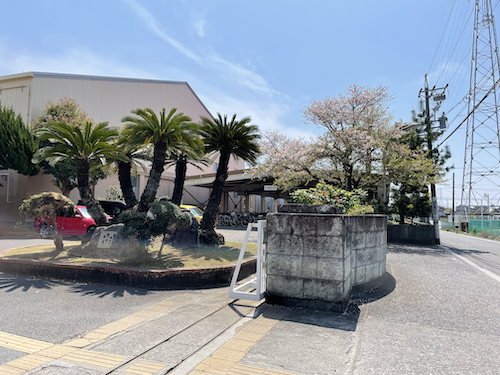Team Teaching: Junior High
One of the things that took some adjusting to at work was the differences between each English teacher I worked with. They all had different ways of doing things and different expectations of what my role as an ALT should be. Some teachers wanted me to take a more active role in the classroom, while others wanted me to assist with their lessons. I don’t mind being an assistant (it is in my job title after all) but I don’t want my role to feel completely insignificant. Most of the JTEs (Japanese Teacher of English) were good about including me in the lessons, to varying degrees. There was one JTE, the third year junior high teacher, I didn’t particularly like teaching with because he rarely ever communicated with me and he didn’t give me any freedom or flexibility with our lessons. There was no collaboration or teamwork at all.

During my self introduction, he sat at the back of the room, only interjecting when he felt the need to translate something he didn’t think the students would understand. The next lesson I had with him was a Christmas lesson, and he did the same thing. The first couple lessons I had with his classes, I tried to make conversation with him to find out more about his classes and the school, but he gave me vague and short responses. After winter vacation, I taught a few more lessons with him, although you could hardly call it teaching. About 5 minutes prior to class, he told me to follow his lead. That was it. He started interviewing me about how I spent my winter vacation, and he instructed the students to take notes on what I was saying. After he was done interviewing me, he asked the students questions about what I said, sometimes in Japanese and sometimes in English. The students answered in both English and Japanese. It was clear from their answers they mostly understood me, but I felt like they would get more out of it if he encouraged them to answer in English as much as possible. He conducted so much of class in Japanese that it didn’t really feel like English class compared to my other classes. He even gave instructions entirely in Japanese. Even my first year junior high students can follow basic instructions in English and their English level is significantly lower than the third year junior high students. In my other classes, we at least try to say everything in English, and if they don’t understand we use Japanese and then explain the English to them alongside the translation. Another thing this third year junior high teacher had me do was read sentences from a textbook to the students. They were instructed to write down what they heard me say. I read each sentence twice as clearly as I could and gave time in between each sentence for the students to write. Lessons with this teacher were extremely boring, but on the plus side it was easy work and I knew what to expect.
In contrast, the second year junior high school teacher had a lot of energy and his classes were fun and lively. At the beginning of each lesson, he would play a song in English. The song changed every month, and the students were given a lyric sheet with a Japanese translation. They would sing along as the song played and some would even dance. It was so adorable to watch. My first month there they were singing “Thousand Miles” by Vanessa Carlton. Next month was December, so of course we had to sing “All I Want For Christmas Is You” by Mariah Carey. In January, it was “Stay” by Justin Bieber. This one was particularly surprising to me, because the song has the F word in it more than once. The JTE warned me of this with a huge smile on his face prior to playing the song. He told me he instructed the students that it was a bad word and not to sing it, but as I listened to the students sing I noticed one student was very enthusiastically singing without bothering to skip the word. After class, I heard that same student repeating the line with the F word in it over and over. It was hard not to laugh out loud as I listened to a Japanese 8th grader happily sing the F word. No matter what song was played for the month, I always enjoyed starting class this way. I think it’s an effective warm up for the students and it gets them in a good mood to start class. I always enjoyed attending this class, even if I mainly took on a support role. The JTE’s enthusiasm and good attitude rubbed off on me and the students, so we always had fun. He mainly focused on doing conversational activities so the students could practice talking in English to each other and to me. His students were particularly motivated to speak to me before, after, and in between classes because of this frequent practice they had with me during class.

I refer to my first year junior high classes as the “wild card” classes. Their moods can be a bit unpredictable and sometimes it can be a challenge to hold their attention. Since it’s their first year of junior high, a lot of them are still in an elementary school mindset. They can be very immature and rowdy at times, and other times they are very focused and attentive. No matter what their mood is, I usually end up having fun with them even if the lesson doesn’t go as planned. Due to the previous first year junior high teacher going on maternity leave, when I arrived the three first year classes were split between two teachers. This made planning a bit confusing, because half the time the two teachers had different plans for what we would do in class. Out of all my junior high classes, I felt like I had the best team teaching moments with this class. Both teachers were interested in collaborating with me, or splitting the class into two sections. One section I would take the lead and they would assist, the other section they would lead and I would assist. Or sometimes I would lead the entire class and they would assist and vice versa. I appreciated their approach because this class was the most difficult to prepare for. Since English education isn’t mandatory in elementary school In Japan, the students are new to structured English education, and everything needs to be planned more carefully. I had trouble with this at the beginning since I was unsure what level of English they could understand. Some of them came from elementary schools with more in depth English education, and others only knew the most basic greetings and random words. Thankfully, no matter what I did these students seemed to enjoy my presence in the classroom. They were by far the most enthusiastic to see me out of all the classes. They are also obsessed with stickers, so I always made sure to bring some with me to hand out as prizes for participation.

As you can tell, there is a big difference in the way each teacher approaches English class and the way they choose to utilize ALTs in the classroom. At first, it was an adjustment to learn the expectations of each JTE, but now that I am acclimated I have come to appreciate them. The teacher I didn’t enjoy teaching with has moved on to a new school, so once classes resume I will have a new junior high teacher to adjust to, in addition to two new high school teachers. I think it will be easier this time now that I am more confident in my role as an ALT.